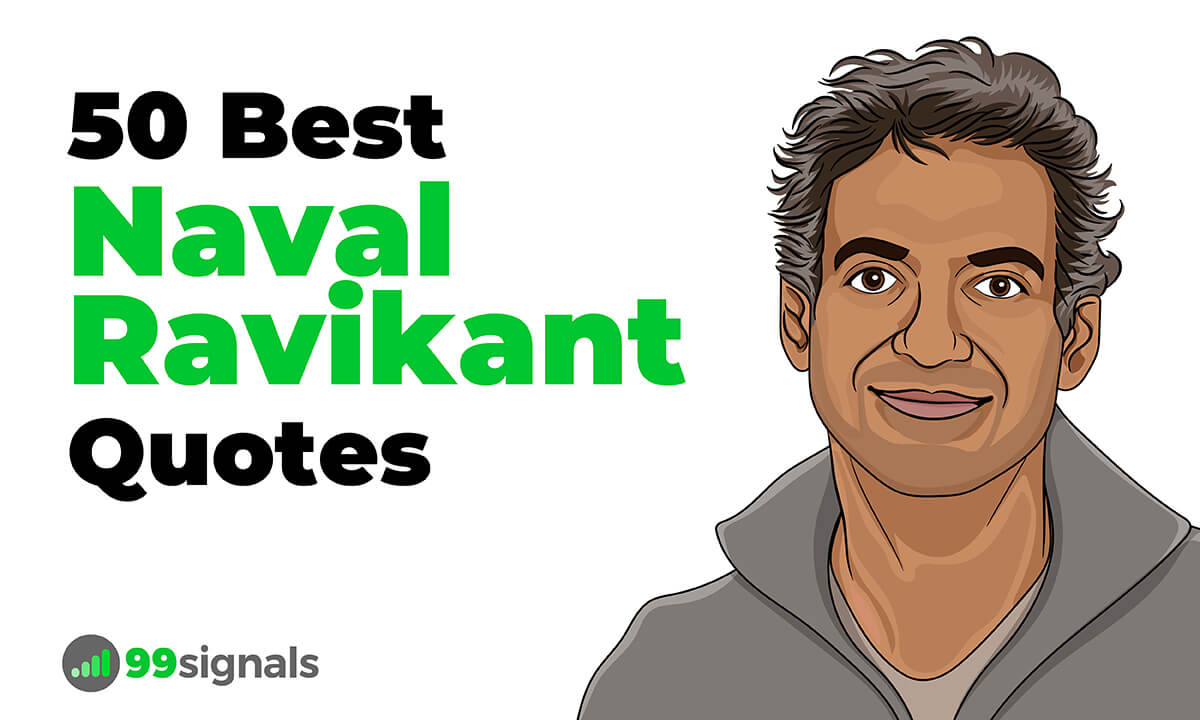
Naval Ravikant is a Silicon Valley entrepreneur and one of the most sought-after angel investors. He has launched several successful startups and invested in over 200 companies, including Uber, Twitter, and Clubhouse.
For the last several years, Naval has been sharing his unique perspectives on business, investing, and happiness to millions of followers on Twitter, through his own blog, podcast, and numerous other podcast interviews.
In 2020, Eric Jorgenson published The Almanack of Naval Ravikant. The book became an instant hit among entrepreneurs and has since influenced entrepreneurs and creators from all corners of the world, including me. If you've never heard of Naval before, Jorgenson's book would be a great place to start.
The book curates Naval's philosophy on two of his most explored topics: wealth and happiness. It's filled with lessons, anecdotes, mental models, and advice that every entrepreneur will cherish as a guide to lead a happier, more successful life.
It's one of the must-read business books for entrepreneurs from all walks of life. I'd urge you to pick up a copy of this book right away or if you prefer to read the book online, you can read the entirety of it for free at navalmanack.com.
Here's how Tim Ferriss, who wrote the forward for The Almanack of Naval Ravikant, describes Naval:
Naval is one of the smartest people I've ever met, and he's also one of the most courageous. Not in the "run into the fire without thinking twice" sense, but in the "think twice and then tell everyone they're focusing on the wrong fire" sense. He is rarely part of any consensus, and the uniqueness of his life, lifestyle, family dynamics, and startup successes is a reflection of conscious choices he's made to do things differently.
The collection of Naval Ravikant quotes below is an attempt to showcase some of his unique perspectives on business, life, wealth, and happiness. I've compiled 50 of Naval Ravikant's best quotes — these are the quotes that really resonated with me and changed my perspective on life and business.
The Naval Ravikant quotes featured below have been compiled from three main sources: Erik Jorgenson's book The Almanack of Naval Ravikant, Naval's tweets, and Naval's podcast interviews. Use the table of contents below to jump to different sections within the post.
Table of Contents
The first section in this post deals with excerpts from Eric Jorgenson's book The Almanack of Naval Ravikant.
1. "All the returns in life, whether in wealth, relationships, or knowledge, come from compound interest."
— Naval Ravikant
Naval Ravikant is on the money with this quote. Compound interest is an immensely powerful concept and it doesn't just work from an investment perspective. It works in business relationships, your reputation, and knowledge as well.
The longer you stay invested in a relationship or in the quest for knowledge, the better the returns in the long run. Similarly, if you have a good reputation and you keep building it for decades, people will eventually notice and you'll gain economic rewards.
2. "The most important skill for getting rich is becoming a perpetual learner."
— Naval Ravikant
We can either adopt a fixed mindset or growth mindset. By adopting a growth mindset, we become perpetual learners.
The old school of thought was to get a college degree and work a job for the next thirty years. But things are different now. You can't expect to get rich by adopting a "know-it-all" attitude and refusing to learn new skills. You need to embrace a growth mindset to achieve great things and build wealth.
As Naval Ravikant says, the most important skill you can possess in pursuit of wealth is to never stop learning.
3. "Embrace accountability and take business risks under your own name. Society will reward you with responsibility, equity, and leverage."
— Naval Ravikant
If you'd like to succeed in business, you need to take full accountability and have the courage to take risks under your own name. Just take a look at all the successful entrepreneurs — Richard Branson, Steve Jobs, Henry Ford, and Jeff Bezos to name a few. They all had the courage to take massive risks under their own name and society rewarded them with wealth, trust, and recognition.
4. "If you can outsource something or not do something for less than your hourly rate, outsource it or don't do it."
— Naval Ravikant
Naval recommends that we set an aspirational hourly rate. Once you've set an hourly rate, you need to stick to it no matter what. You need to factor in your time into every decision you make. If you can find someone to do a job for less than your hourly rate, then it's better to outsource it or not do it at all to save precious time that you can then devote to focusing on things that matter.
5. "The less you want something, the less you're thinking about it, the less you're obsessing over it, the more you're going to do it in a natural way."
— Naval Ravikant
This quote by Naval Ravikant reminds me of another quote by the great Zen monk and teacher Shunryu Suzuki, "In the beginner's mind there are many possibilities, but in the expert's there are few." This Zen concept is known as shoshin (meaning beginner's mind).
When you do things with shoshin, you let go of your preconceptions and prior knowledge and develop an attitude of openness to learn something new.
6. "Wealth is assets that earn while you sleep."
— Naval Ravikant
Naval is one of the few intellectuals who can clearly define the difference between wealth and money. As Naval says, money is how we transfer wealth. Money is essentially social credits. Wealth, on the other hand, is businesses and assets that earn while you sleep.
To build wealth, you must own equity. Getting stock options at the company you work for or making long-term investment bets in the stock market are great ways to start. But the best way to generate wealth is to start your own business. And this is exactly what Naval recommends. Once you grasp the deeper meaning of wealth, you realize that the best route to financial freedom is to start your own venture.
7. "Forget rich versus poor, white-collar versus blue. It's now leveraged versus un-leveraged."
— Naval Ravikant
Leverage is a recurring theme in Naval's business philosophy. To get a deeper understanding of this quote, you need to make sense of leverage.
According to Naval, there are three broad classes of leverage. One form of leverage is labor. The second form of leverage is money or capital. It's the most dominant form of leverage in the last century. The third form of leverage is "products with no marginal cost of replication." This includes books, media, movies, and code.
Naval believes code is the most effective form of leverage. Labor, on the other hand, is the worst form of leverage you can have. Not just because managing people is difficult and requires exceptional leadership skills. Since what you're doing can easily be done by others, you don't have any specific knowledge.
So in order to generate wealth, you need to build specific knowledge. As Naval says, you need to productize yourself. When you do that, you'll have an infinite amount of leverage.
8. "Forty hour work weeks are a relic of the Industrial Age. Knowledge workers function like athletes — train and sprint, then rest and reassess."
— Naval Ravikant
To be in control of time is to be in control of your life. Work when you're in high-energy mode and rest when you're in low-energy mode. That's how entrepreneurs can maximize their productivity and make efficient use of their time.
9. "Earn with your mind, not your time."
— Naval Ravikant
In one of his podcast interviews, Naval remarked how renting out your time means you're essentially replaceable. Which is why it's key to build specific knowledge. When you have specific knowledge, you have leverage. With specific knowledge and leverage at your disposal, you can start earning with your mind, and not your time.
10. "I would rather be a failed entrepreneur than someone who never tried. Because even a failed entrepreneur has the skill set to make it on their own."
— Naval Ravikant
This Naval Ravikant quote illustrates how it's important to be an entrepreneur, even if your business doesn't achieve the desired goals. This is because the skill set you develop in your entrepreneurial experience stays with you for the rest of your life.
Bottom line? Entrepreneurship is a life skill.
11. "Most of the gains in life come from suffering in the short term so you can get paid in the long term."
— Naval Ravikant
Inaction can hurt us even more in the long run. Procrastination may feel good in the short run, but it takes a toll on your productivity and the quality of your output. In order to be successful, you have to accept suffering in the short term, so you can reap rewards in the long term.
12. "Retirement is when you stop sacrificing today for an imaginary tomorrow. When today is complete, in and of itself, you're retired."
— Naval Ravikant
There's a myth surrounding what our retirement age should be. Some want to retire early while others want to work until their last day on the planet. But as Naval remarks, you retire when you have enough savings, becoming a monk, or by working on something that you're really passionate about.
13. "Apply specific knowledge with leverage and eventually, you will get what you deserve."
— Naval Ravikant
The summary of Naval's famous "How to Get Rich" tweet thread is "Productize Yourself." Naval breaks these two words down as follows:
"Yourself" has uniqueness. "Productize" has leverage. "Yourself" has accountability. "Productize" has specific knowledge. "Yourself" also has specific knowledge in there. So of all these pieces, you can combine them into these two words.
With specific knowledge and sufficient leverage at your disposal, you are better equipped to reach your business goals.
14. "My definition of wisdom is knowing the long-term consequences of your actions. Wisdom applied to external problems is judgment."
— Naval Ravikant
This is a great definition of wisdom. Wisdom is understanding the long-term repercussions of your actions today. When your wisdom is applied to external problems like paying off your home loan or dealing with a problematic situation, that's good judgment.
15. "Mental models are really just compact ways for you to recall your own knowledge."
— Naval Ravikant
Mental models are how we break down complex ideas and scenarios into understandable chunks. The more mental models you have in your toolbox, the better equipped you are to face the realities of life.
Here's how Farnam Street defines mental models:
Mental models are how we understand the world. Not only do they shape what we think and how we understand but they shape the connections and opportunities that we see. Mental models are how we simplify complexity, why we consider some things more relevant than others, and how we reason.
In other words, a mental model is an understanding of how things work. The quality of our thinking is determined by our mental models and how we use them in the situation at hand. For example, Naval is widely regarded as a first principles thinker. First principles thinking is a core mental model wherein you deconstruct a complex idea separating facts from assumptions.
As Naval says, we can learn to think better and apply our knowledge to any situation at hand by having a set of mental models.
16. "Reading a book isn't a race — the better the book, the more slowly it should be absorbed."
— Naval Ravikant
I love this quote by Naval Ravikant. I've been guilty of taking audacious reading challenges on Goodreads (I used to target reading 100 books a year). But it's not about the number of books you read. It's the knowledge you can retain from those books. For this reason, it's more important to read a good book slowly, while highlighting passages you like and taking notes that you can revisit from time to time.
It's also worth rereading a good book several times so you can completely absorb the lessons. It feels good to have books in your reread list and it's a rewarding experience to revisit some of the books you love.
17. "Read the greats in math, science, and philosophy. Ignore your contemporaries and news. Avoid tribal identification. Put truth above social approval."
— Naval Ravikant
Naval recommends books from these topics because these are the topics that tend to scare people off because of the complex concepts that are unraveled in the books. Even if you find them too difficult or confusing the first time, you should go ahead and read them anyway and reread them until you absorb all the important lessons.
18. "If you start with the originals as your foundations, then you have enough of a worldview and understanding that you won't fear any book."
— Naval Ravikant
To get a better grasp of complex topics like math, science, and philosophy, start with the basics. If you want to study the theory of evolution, read Charlies Darwin's On the Origin of Species. Similarly, if you want to learn microeconomics, start with Adam Smith's Wealth of Nations. Before reading the contemporaries on these subjects, you should start with the originals because that gives you a much better foundation.
19. "Don't take yourself so seriously. You're just a monkey with a plan."
— Naval Ravikant
One of the biggest mistakes we do in life is to take ourselves too seriously. We need to constantly remind ourselves that we are just a monkey with a plan. It really puts things into perspective.
20. "A rational person can find peace by cultivating indifference to things outside of their control."
— Naval Ravikant
This Naval Ravikant quote is the foundation of Stoicism, an ancient Greco-Roman philosophy that has inspired new-age entrepreneurs like Naval, Tim Ferriss, Mark Cuban, and many more.
Dichotomy of control is the central tenet of stoicism. It's the idea that certain things are under our control, while other things are not. It essentially means cultivating indifference to things outside our control and focusing our energy and resources on things we can control.
You can lead a much happier life if you focus on things that are in your control and ignore things that are out of your control. It's easier said than done, which is why Stoicism deserves deeper study and analysis. To learn more about Stoicism, I'd recommend these five books:
- Meditations by Marcus Aurelius
- Letters from a Stoic by Seneca
- Discourses and Selected Writings by Epictetus
- The Daily Stoic by Ryan Holiday
- Live Like a Stoic by Massimo Pigliucci
21. "The enemy of peace of mind is expectations drilled into you by society and other people."
— Naval Ravikant
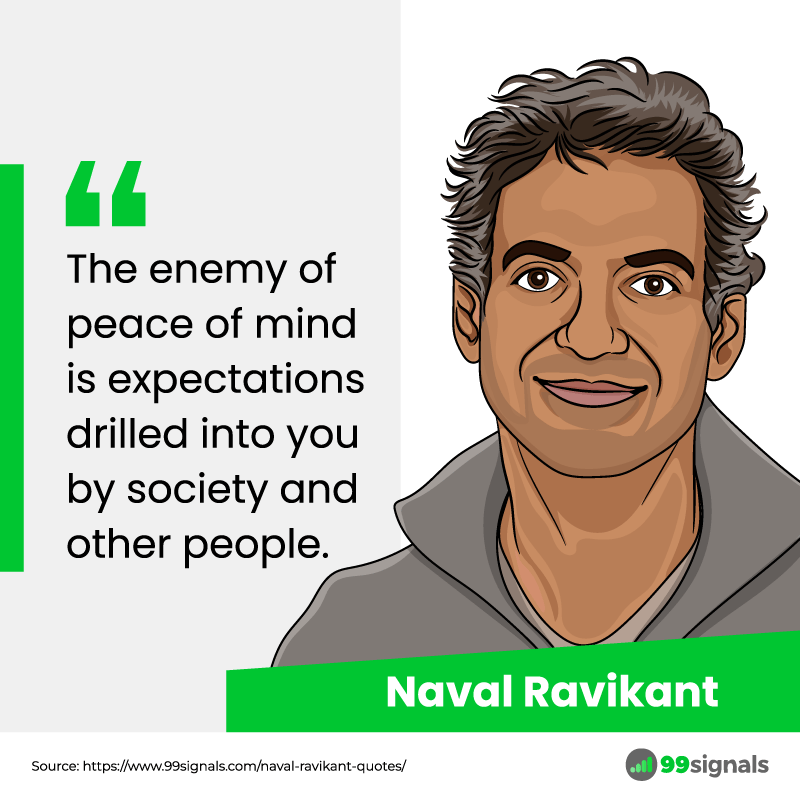
The Roman emperor and Stoic philosopher Marcus Aurelius once said, "I have often wondered how it is that every man loves himself more than all the rest of men, but yet sets less value on his own opinion of himself than on the opinion of others." It's a clear reminder to all of us to not live life according to the expectations of society.
22. "Caught in a funk? Use meditation, music, and exercise to reset your mood. Then choose a new path to commit emotional energy for rest of day."
— Naval Ravikant
If you're ever afraid of a new endeavor or are just procrastinating on a new project, use meditation, music, and exercise to reset and refresh. Once you've done that, get back to whatever it is you were doing with renewed focus and energy.
23. "A personal metric: how much of the day is spent doing things out of obligation rather than out of interest?"
— Naval Ravikant
A thoughtful observation by Naval. Figure out how many things are done in your day due to what the family and society expects of you, rather than out of your own interest. Once you've figured that out, try to spend more time on doing things you like and things that can further your learning.
24. "We evolved for scarcity but live in abundance."
— Naval Ravikant
The proliferation of social media and mobile technology has turned us into anxious creatures. The constant need to check the phone or achieve "inbox zero" is a recipe for misery. For this reason, we need to take a step back and resist the urge to respond to emails or social media comments in real-time. Don't make yourself so reachable.
25. "Life hack: when in bed, meditate. Either you will have a deep meditation or fall asleep. Victory either way."
— Naval Ravikant
This is an interesting and super useful life hack from Naval Ravikant. I've tried it myself and like Naval says, it works both ways. Either you'll have a wonderful meditation session or fall asleep. You win either way. In both instances, you get the required rest you so desperately need.
26. "Meditation is intermittent fasting for the mind."
— Naval Ravikant
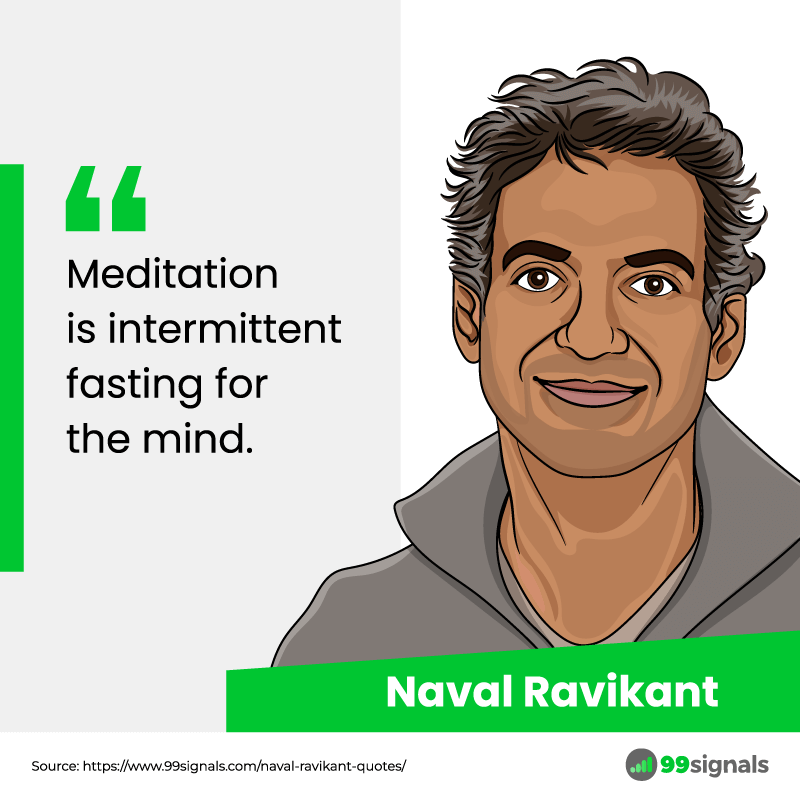
Intermittent fasting is when you eat within the time frame of 8 hours and fast for 16 hours. It's one of the most effective ways to lose weight and reset your body. As intermittent fasting is to the body, meditation is to the mind.
27. "Grind and sweat, toil and bleed, face the abyss. It's all part of becoming an overnight success."
— Naval Ravikant
The news media and people in general love overnight success stories. But let's face it: overnight success doesn't exist. NBA legend Michael Jordan said it best when he said, "I've missed more than 9,000 shots in my career. I've lost almost 300 games. Twenty-six times, I've been trusted to take the game-winning shot and missed. I've failed over and over and over again in my life. And that is why I succeed."
In order to succeed, you need to embrace failure and keep learning from your mistakes. As Naval says, overnight success is a result of countless hours of grinding, toiling, and sweating.
28. "Courage isn't charging into a machine gun nest. Courage is not caring what other people think."
— Naval Ravikant
Stoic philosopher Epictetus once said, "If you are ever tempted to look for outside approval, realize that you have compromised your integrity. If you need a witness, be your own." Your success, happiness, and self-worth shouldn't be determined by other people. Instead, you should look inward and set your own benchmarks.
One of the most effective ways to lead an unhappy life is to care about what others think. As Naval says, real courage is all about not caring what other people think. When you stop seeking outside approval, you set better standards for yourself and approach goals with a clear mind.
29. "Inspiration is perishable — act on it immediately."
— Naval Ravikant
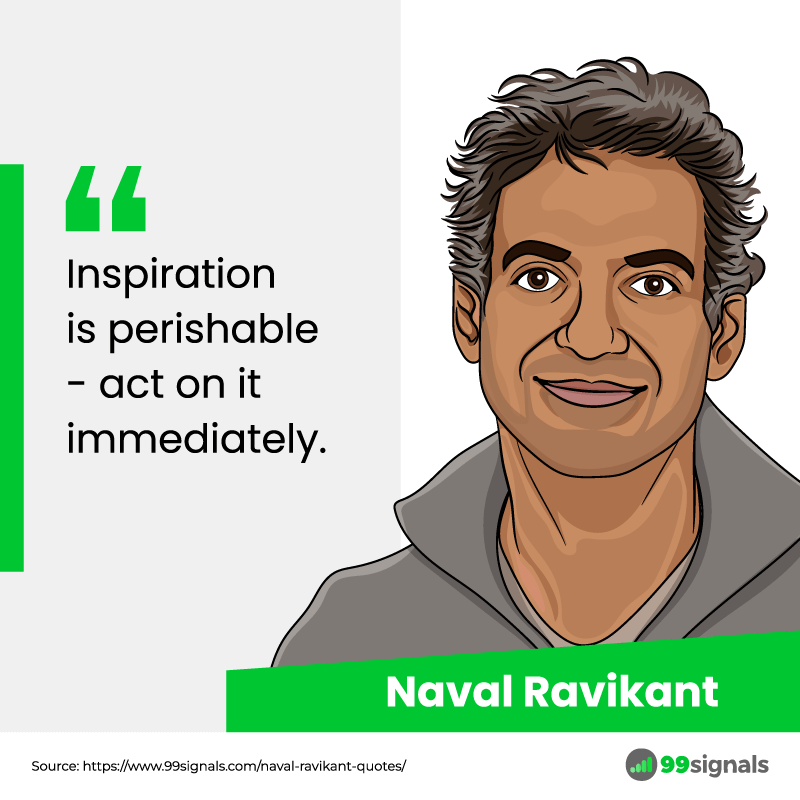
When you're inspired by something, act on it immediately. Because inspiration is just a fleeting moment. If you don't capture it at the right time, you're going to lose it forever. So if you find inspiration, acting on it is key to developing some sort of momentum.
30. "The democratization of technology allows anyone to be a creator, entrepreneur, scientist. The future is brighter."
— Naval Ravikant
Where you live still plays an important role, but the ubiquitousness of the internet and digital devices has made it easy for anyone to be an entrepreneur or creator. We live in the information age. Access to all kinds of information is now easier than ever, giving your ideas a better chance of becoming reality.
This section includes Naval Ravikant quotes compiled from his Twitter account.
31. "Changing your interpretation of your past is often just as good as changing your past."
— Naval Ravikant
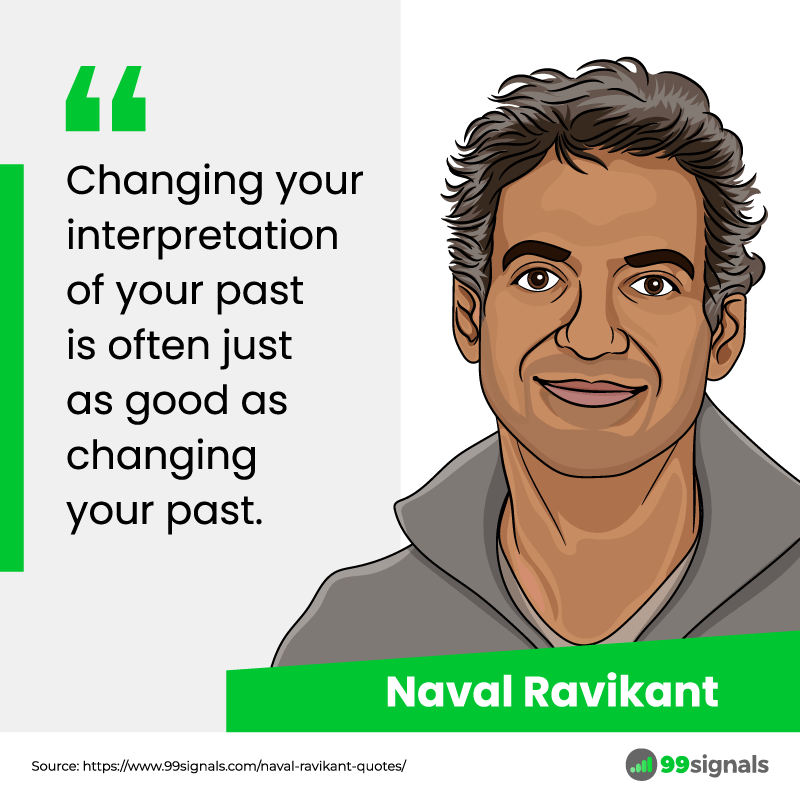
Don't let your past define your present. It's not the past events themselves that are affecting us. It's the way we interpret these events. By changing our interpretation of past events, we can prevent it from defining our present and future.
32. "Reading is more efficient when at rest. Audio is more efficient when in motion."
— Naval Ravikant
A simple piece of advice from Naval on how to optimize your time and learning. Read books while you're resting and listen to podcasts or audio books while traveling, commuting to work, or working out at the gym.
33. "School, politics, sports, and games train us to compete against others. True rewards – wealth, knowledge, love, fitness, and equanimity – come from ignoring others and improving ourselves."
— Naval Ravikant
The social media culture has bred envy and jealousy into our DNA where we constantly compare ourselves with others. Instead of competing with others, which leads to envy and misery ultimately, compete with your past self. It's the best way to improve yourself.
34. "My 1 repeated learning in life: 'There Are No Adults.' Everyone's making it up as they go along. Figure it out yourself, and do it."
— Naval Ravikant
This quote by Naval Ravikant reminds me of the famous Socrates quote, "The only thing I know is that I know nothing." And he's one of the greatest philosophers of all time. When he can have the humility to accept that he knows nothing, who are we to proclaim we have all the answers? Stop taking yourself so seriously, learn from your mistakes, and set your own path.
35. "The really smart thinkers are clear thinkers. They understand the basics at a very, very fundamental level. I would rather understand the basics really well than memorize all kinds of complicated concepts I can't stitch together and can't rederive from the basics."
— Naval Ravikant
All the brilliant thinkers have a toolbox of mental models that they apply to different problems and situations. They have such a clear understanding of concepts because they have a fundamental understanding of the basics. Revisit quote #17 and you'll know why Naval stresses so much on reading the fundamentals really well.
36. "When building a portfolio of investments that can have non-linear outcomes, never sell early. You may be right most of the time, but the one time you're wrong will cost you most of the returns."
— Naval Ravikant
This is such an important observation on investing. This is especially the case if you're investing in cryptocurrencies. Take the extreme volatility of Bitcoin, for example, and the panic that ensues when the prices drop.
When you're building a robust stock or crypto portfolio, make sure you stay invested for a long period and resist the temptation to sell early. As Morgan Housel says in his brilliant book The Psychology of Money, "Doing well with money has little to do with smartness and a lot to do with behavior." Stay invested in the long run and enjoy the benefits of compounding.
37. "The most important trick to be happy is to realize that happiness is a choice that you make and a skill set that you develop. You choose to be happy, and then you work at it. It's just like building muscles."
— Naval Ravikant
Happiness is a skill that needs to be developed. It's just like developing an exercise routine. Once you make a commitment to stay heathy, your exercise routine becomes more meaningful and you're in a much better frame of mind to reach your health goals. We need to take a similar approach to happiness. Once you make a choice to be happier, you are in a much better mental state to develop a skill set for happiness.
38. "If you eat, invest, and think according to what the 'news' advocates, you'll end nutritionally, financially, and morally bankrupt."
— Naval Ravikant
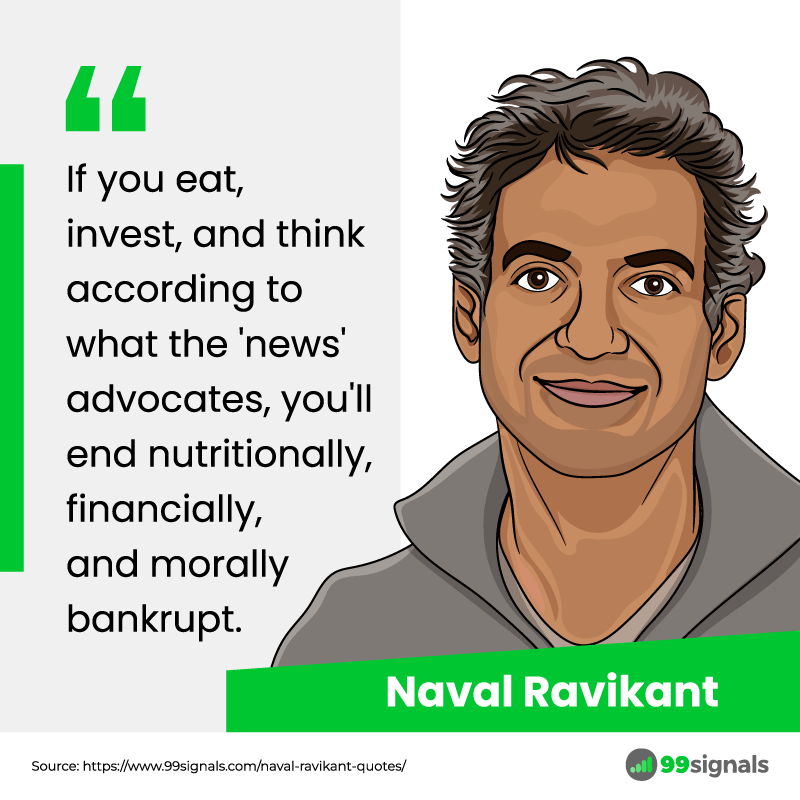
Mainstream news channels follow the money. There's nothing authentic in their advice, be it financial, nutritional, or political. The quality of your day shouldn't be determined by what's reported by the news media. Be in control of your inputs and lead a better, happier life.
39. "The Lindy Effect for startups: The longer you go without shipping product, the more likely you will never ship product."
— Naval Ravikant
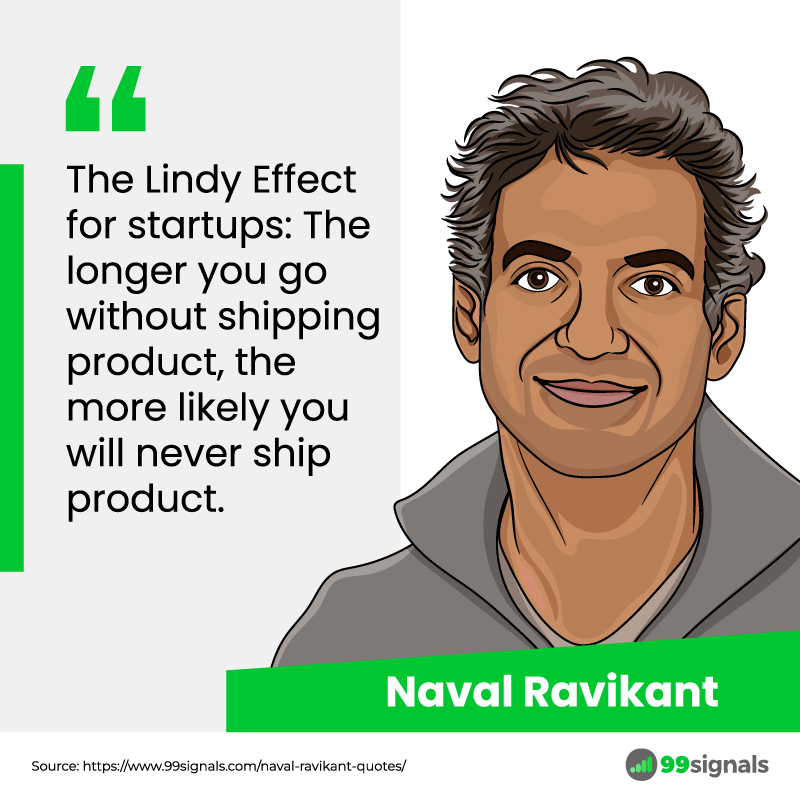
This is procrastination from a startup perspective. The longer you take planning the launch of your product, the more likely you will never launch it.
The Lindy effect applies to content creators as well. The longer you take to finish a specific project, the more likely you are never going to ship it.
In his book Linchpin, Seth Godin describes the importance of shipping. As Seth Godin writes, "The only purpose of starting is to finish, and while the projects we do are never really finished, they must ship. Shipping means hitting the publish button on your blog, showing a presentation to the sales team, answering the phone, selling the muffins, sending out your references."
When it comes to shipping your product, you need to stick to strict deadlines. Even if your product is not fully ready for the market, the best approach is to launch it now, and do improvements to your product later. Long-term planning is simply a waste of time.
40. "If you want to make the wrong decision, ask everyone."
— Naval Ravikant
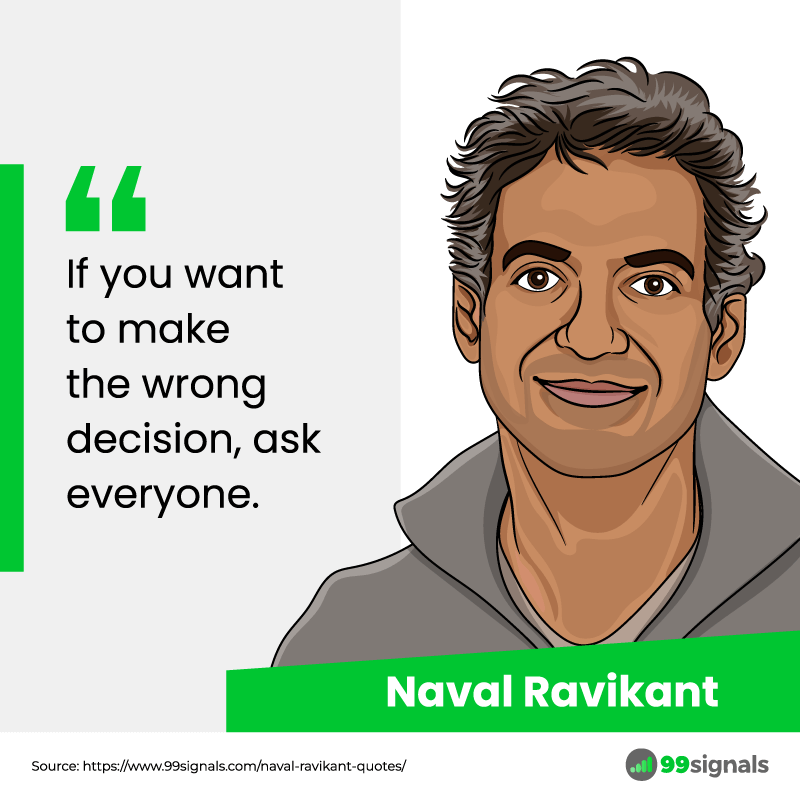
When it comes to deciding something important, trust your gut over the opinion of others. The famous Henry Ford quote goes like this, "If I had asked people what they wanted, they would have said faster horses."
Think about it: We wouldn't have had revolutionary products like cars, personal computers, and smartphones if the visionaries behind these products had waited for their customers to articulate these ideas to them.
This section includes Naval Ravikant quotes from his own podcast and numerous other podcast interviews.
41. "The Internet allows you to scale any niche obsession."
— Naval Ravikant
(From Naval Ravikant's How to Get Rich Podcast)
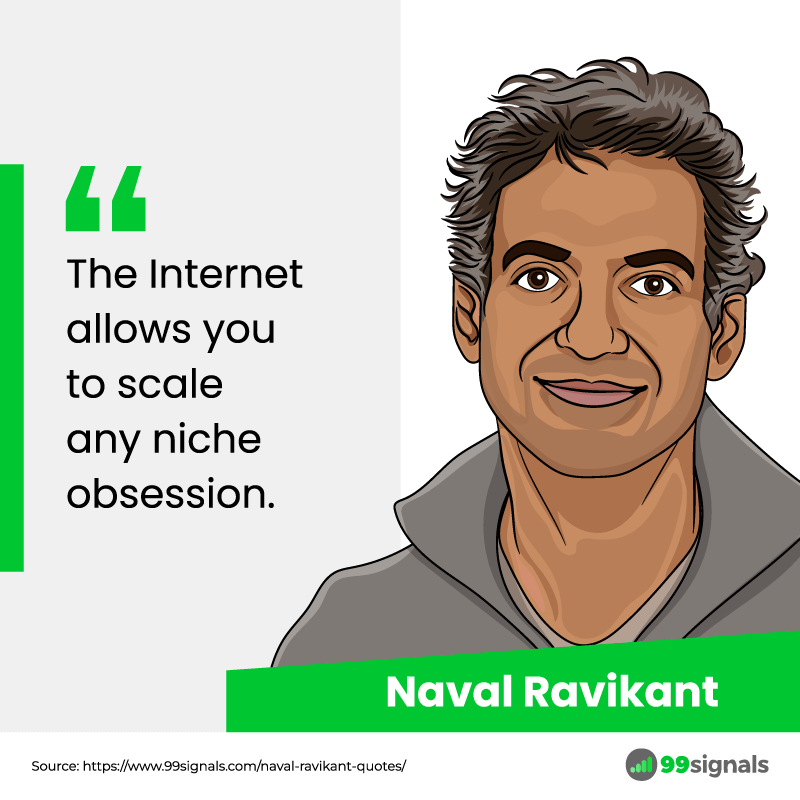
The ubiquitousness of the internet has allowed anyone to carve a thriving career out of their niche obsession. Take Joe Rogan's success with podcasting, for example. And Wally and Amanda's success on Instagram — the husband and wife team behind Accidentally Wes Anderson. Both these vastly different individuals were able to scale a single obsession of theirs and monetize them beyond their wildest dreams.
Joe Rogan is a divisive figure. But even his staunchest critic won't deny the fact that he's one of the most successful content entrepreneurs out there. Who could have predicted ten years ago that podcasting would fetch you a $100 million deal with one of the premier audio platforms in the world? That's what the internet has done.
42. "Play long-term games with long-term people."
— Naval Ravikant
(From Naval Ravikant's How to Get Rich Podcast)
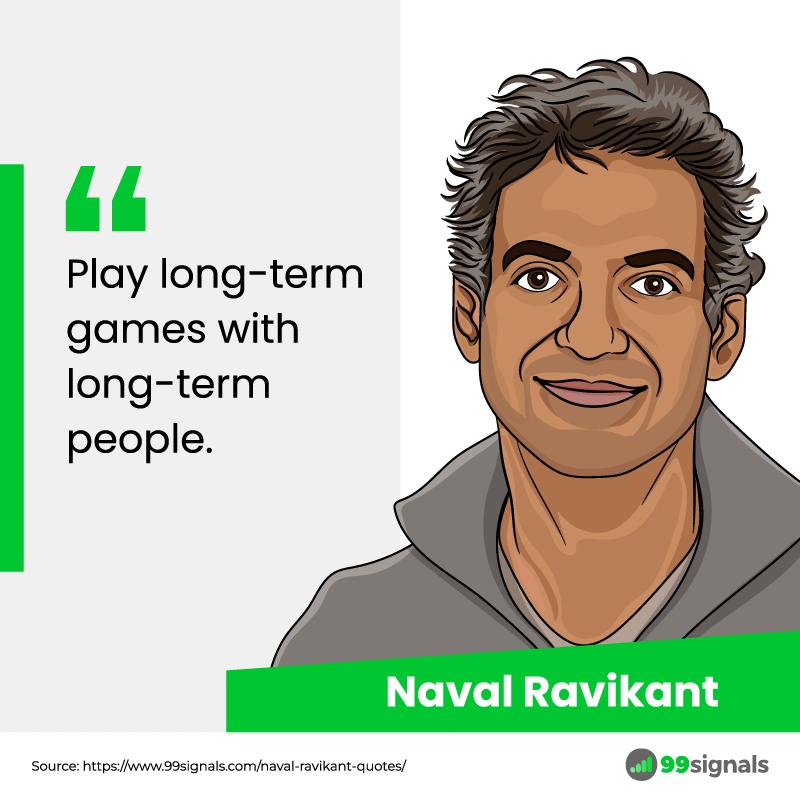
When you play long-term games with people you trust, compound interest takes over and you reap massive rewards in the long run.
43. "Don't partner with cynics and pessimists; their beliefs are self-fulfilling."
— Naval Ravikant
(From Naval Ravikant's How to Get Rich Podcast)
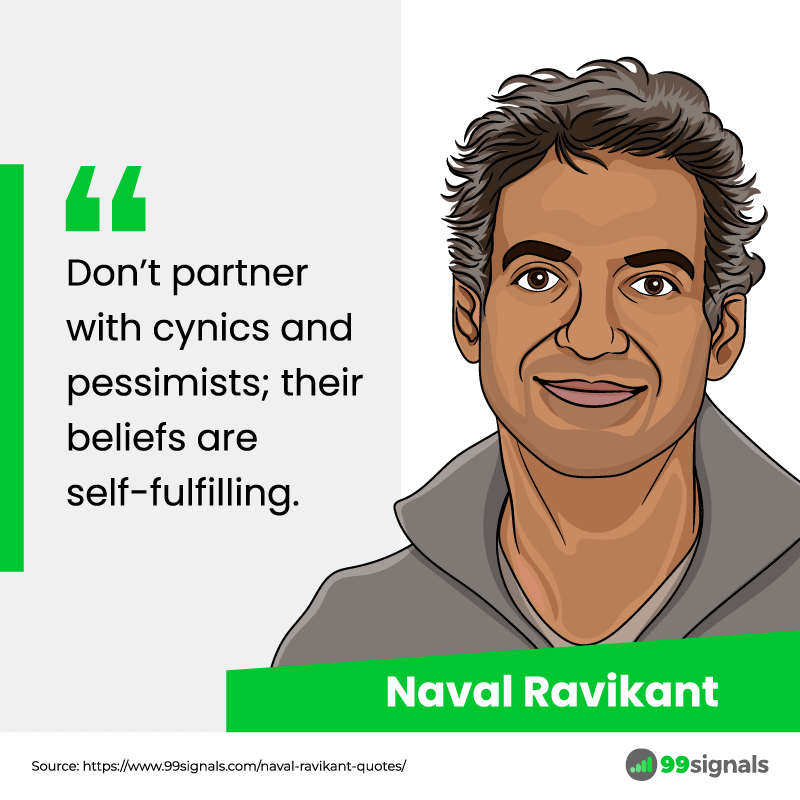
It's important to surround ourselves with people who believe in our vision and goals. Don't associate yourself with cynics as their pessimism will eventually bring you down.
44. "Read what you love until you love to read."
— Naval Ravikant
(From Naval Ravikant's How to Get Rich Podcast)
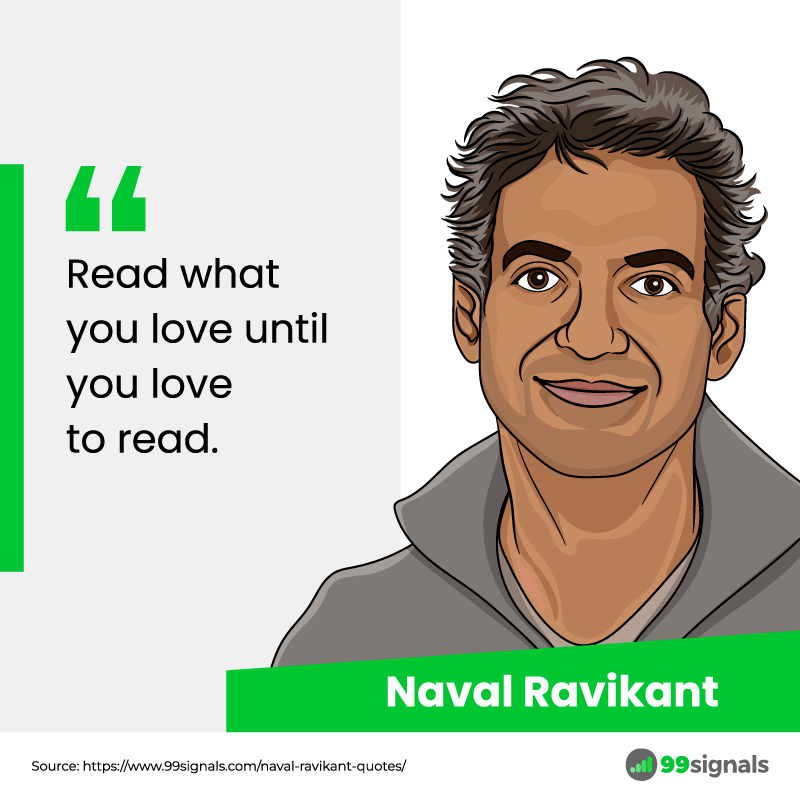
If you want to develop a reading habit, you need to first start with the genres you like. Once it becomes a habit, you can check out the reading recommendations of people you admire.
Side note: You can find Naval's reading recommendations at the end of this article. Be sure to check it out.
45. "Your most important skill isn't even what you majored in or even what you studied, it's just knowing how to learn. If you have a good grasp of mathematics and if you like to read, there's nothing you can't learn on your own."
— Naval Ravikant
When you adopt a growth mindset and embrace the concept of perpetual learning, you can master any skill. Mathematics is one of the STEM disciplines and if you have a keen interest and skill in math, you have all the tools and discipline necessary to learn anything on your own.
46. "I think learning how to break habits is a very important meta-skill that can serve you better in life than almost anything else."
— Naval Ravikant
As Naval says, it's important to be aware of your habits and know how to break bad habits. Naval goes on to explain how it's important to develop working out as a habit or do some kind of physical activity every single day.
Having a daily exercise routine can help you break a lot of bad habits like drinking too much caffeine or smoking or partying all night long. As you start breaking these bad habits, you realize there are other bad habits that can be fixed just as easily.
47. "It's better to read a great book slowly than to fly through a hundred books quickly."
— Naval Ravikant
(From Naval Ravikant's How to Get Rich Podcast)
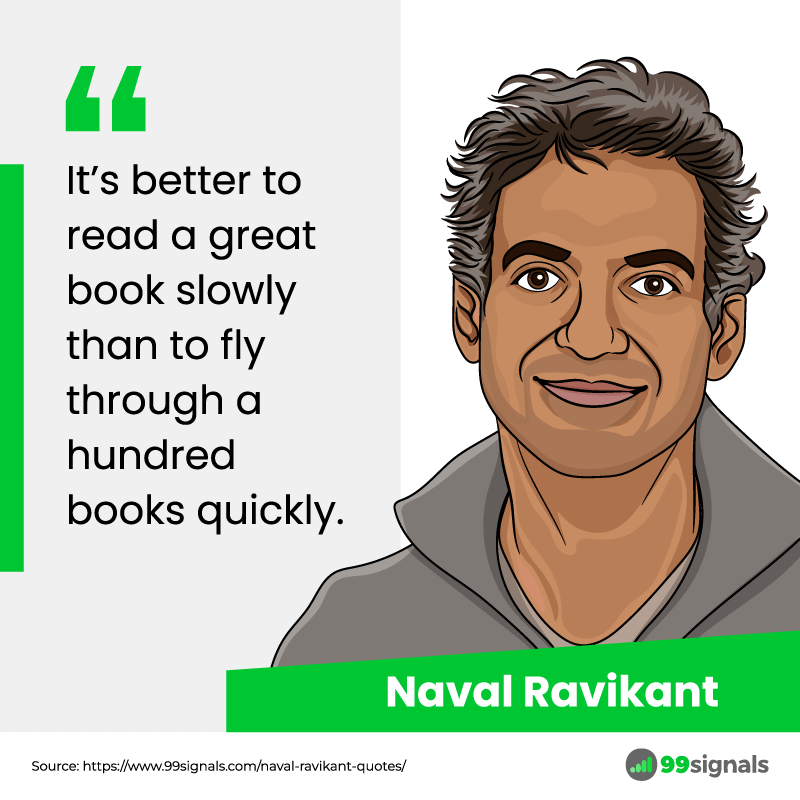
You may be tempted to read as many books as you can as fast as you can. But reading shouldn't be a race with others. Books should be savored and absorbed. When you're reading a good book, read it slowly and absorb its lessons completely. Don't be in a hurry to finish the book.
48. "If you're willing to bleed a little every day, you may win big later."
— Naval Ravikant
(From Naval Ravikant's How to Get Rich Podcast)
This Naval Ravikant quote represents an entrepreneur's journey. In order to be a successful entrepreneur, you have to bleed a little every day so you can win big later.
49. "Take business risks under your own name."
— Naval Ravikant
(From Naval Ravikant's How to Get Rich Podcast)
To get leverage in the form of capital, you have to build credibility. And to build credibility, you need to take business risks under your own name. You need to be accountable. Accountability is a double-edged sword — you get the credit when things go well and bear the brunt of failure when things go south. Which is why most people lack the courage to embrace accountability.
But modern society rewards risk takers — people who have the ability to take risks under their own name get more economic rewards. Embracing accountability is the path to financial freedom and maximum leverage.
50. "You must own equity to gain your financial freedom."
— Naval Ravikant
(From Naval Ravikant's How to Get Rich Podcast)
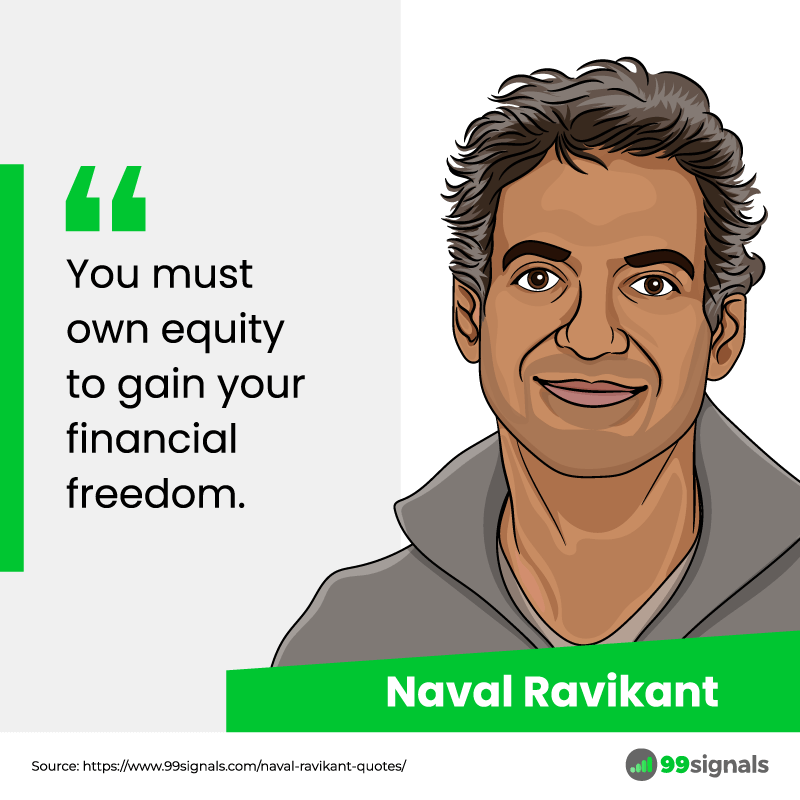
Nassim Nicholas Taleb once said, "The three most harmful addictions are heroin, carbohydrates, and a monthly salary." Naval often uses this quote to remind us of the pitfalls of a salary-based income.
If you study wealthy people around the world, you'll notice that they got rich by owning a piece of a product or a business. As Naval says, the best way to create real wealth is to start your own business. That's the only way you can avoid the wage slave trap.
So these are my picks for the best Naval Ravikant quotes. What's your favorite Naval Ravikant quote? Did you find it in this list here? Let me know in the comments section.
Naval Ravikant is an avid reader and I'd like to leave you here with Naval's book recommendations. I've not included any affiliate links to Amazon in this section; the links take you to their respective Goodreads pages. You can check out this page from Naval's website to get a complete breakdown of Naval's book recommendations.
Non-Fiction
- Sapiens by Yuval Noah Harari
- The Rational Optimist by Matt Ridley – Naval recommends each one of Matt Ridley's books.
- Skin in the Game by Nassim Taleb
- The Bed of Procrustes by Nassim Taleb
- Six Easy Pieces by Richard Feynman
- The Thing Explainer by Randall Munroe
- Thinking Physics by Lewis Carroll Epstein
- The Lessons of History by Will and Ariel Durant
- The Sovereign Individual by James Dale Davidson and Lord William Rees-Mogg
- Poor Charlie's Almanack by Charlie Munger
- Reality Is Not What It Seems by Carlo Rovelli
- Seven Brief Lessons in Physics by Carlo Rovelli
- The Beginning of Infinity by David Deutsch
- The Compleat Strategyst by J.D. Williams
- Pre-Suasion by Robert Cialdini
- The Undercover Economist by Tim Harford
- How to Win Friends & Influence People by Dale Carnegie
- God's Debris by Scott Adams
- How to Fail at Almost Everything and Still Win Big by Scott Adams
- Tools of Titans by Tim Ferriss
Philosophy and Spirituality
- Jed McKenna's Notebook by Jed McKenna
- The Book of Life by Jiddu Krishnamurti
- Total Freedom: The Essential Krishnamurti by Jiddu Krishnamurti
- Siddhartha by Herman Hesse
- The Book of Secrets by Osho
- The Great Challenge by Osho
- The Way to Love by Anthony DeMello
- The Untethered Soul by Michael Singer
- Meditations by Marcus Aurelius
- Love Yourself Like Your Life Depends on It by Kamal Ravikant
- How to Change Your Mind by Michael Pollan
- Striking Thoughts: Bruce Lee's Wisdom for Daily Living by Bruce Lee
- The Tao of Seneca: Practical Letters from a Stoic Master
- The Prophet by Kahlil Gibran
- The Tao of Philosophy by Alan Watts
- The Story of Philosophy by Will Durant
- Man's Search for Meaning by Victor E. Frankl
- Tao Te Ching by Lao Tzu
- The Wisdom of Insecurity by Alan Watts
- Illusions by Richard Bach
- Spiritual Enlightenment: The Damnedest Thing by Jed McKenna
Science Fiction
- Ficciones by Jorge Luis Borges
- Stories of Your Life and Others by Ted Chiang
- Exhalation: Stories by Ted Chiang
- The Lifecycle of Software Objects by Ted Chiang
- Snow Crash by Neal Stephenson
- The Last Question by Isaac Asimov (a short story by Isaac Asimov)
- The Three-Body Problem by Liu Cixin
If you liked this article, please share it on Twitter using the link below:
Editor's Note: This article was first published on 18 June 2022 and has been updated regularly since then for relevance and comprehensiveness.
Related Articles

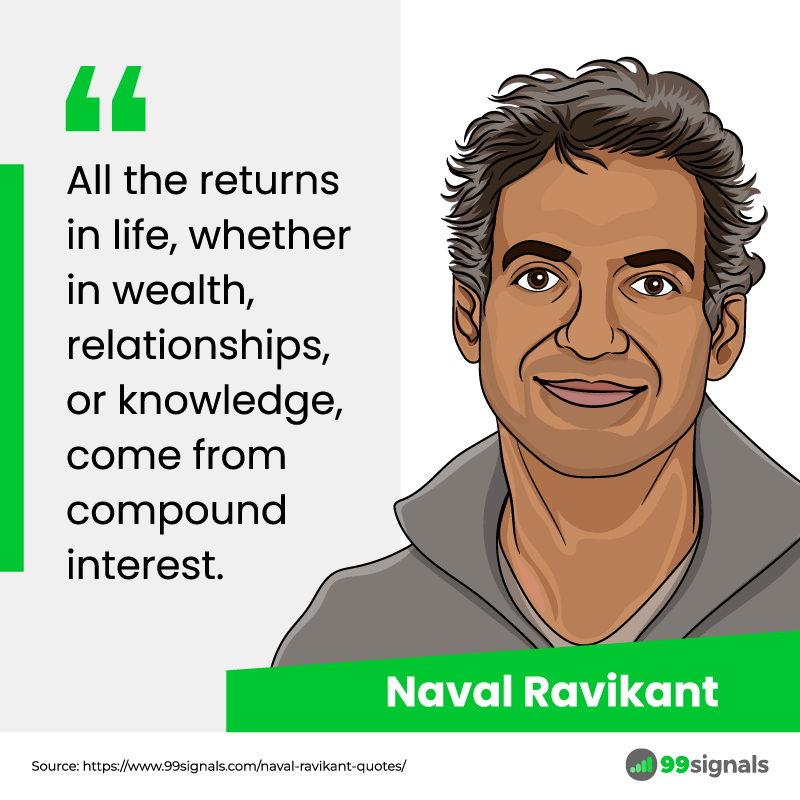
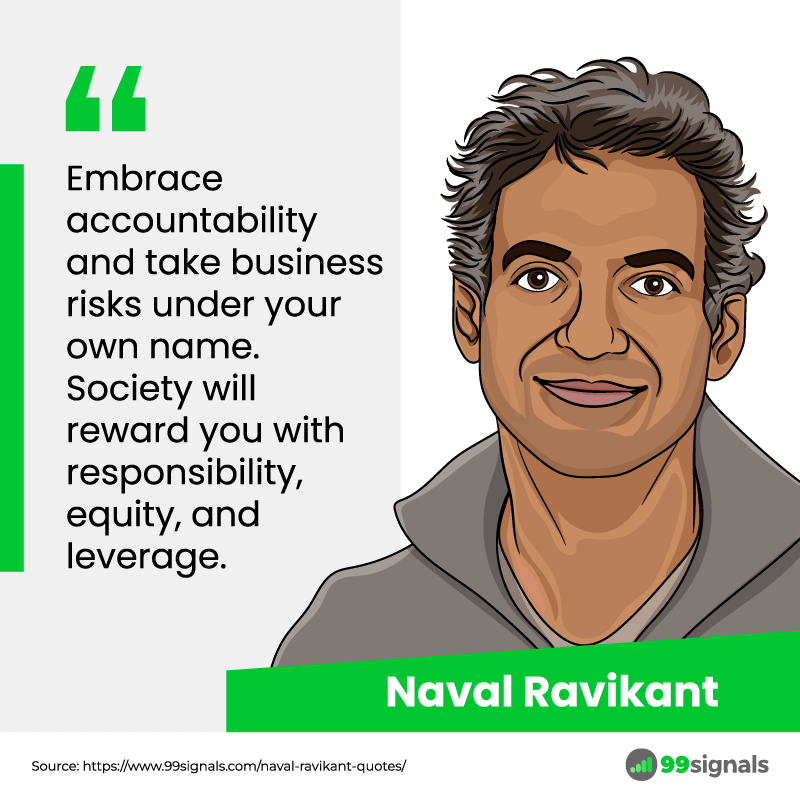
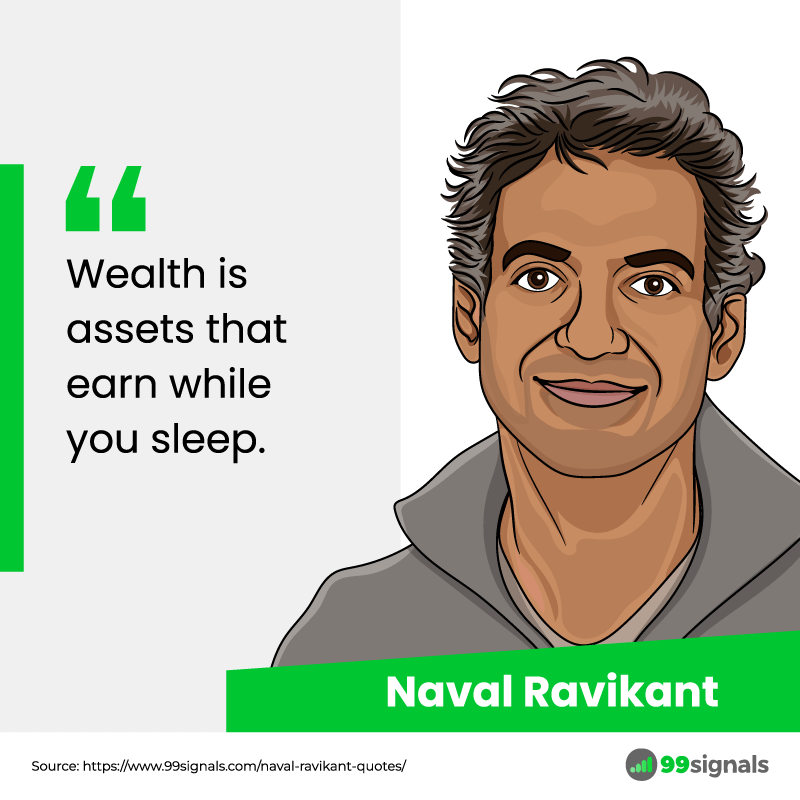
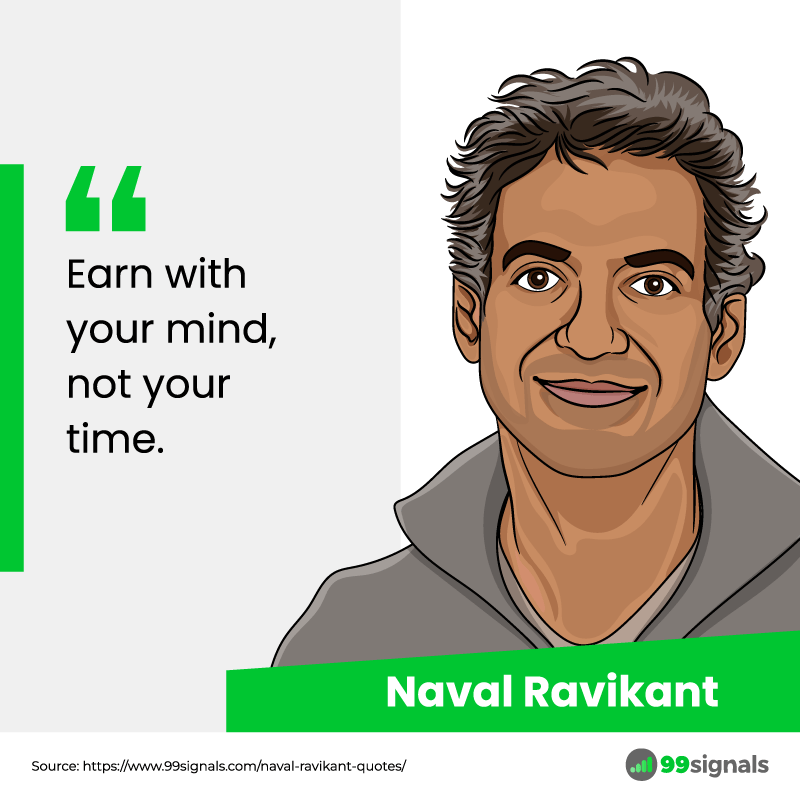
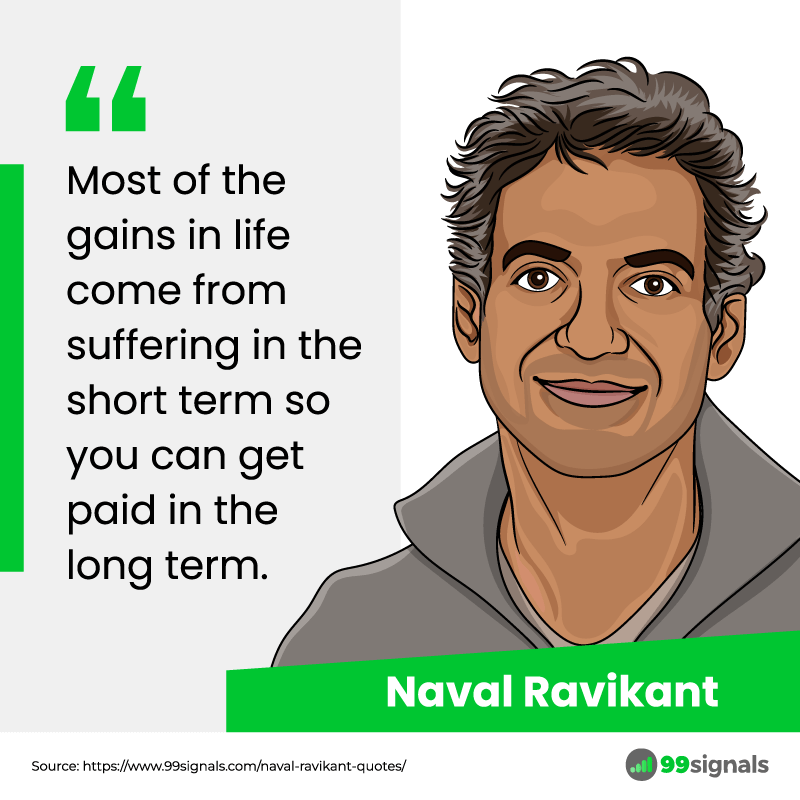
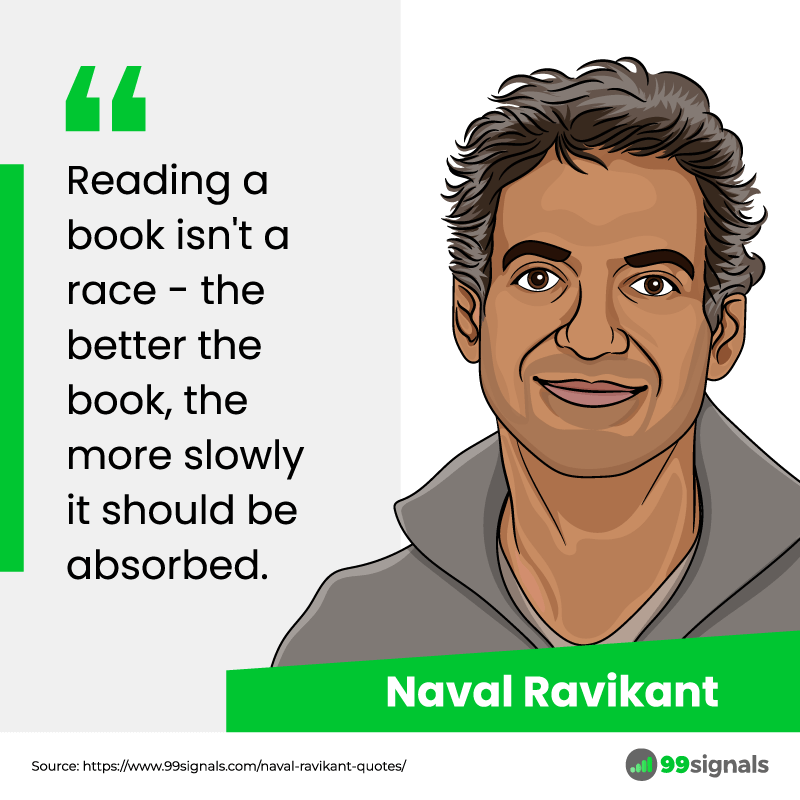
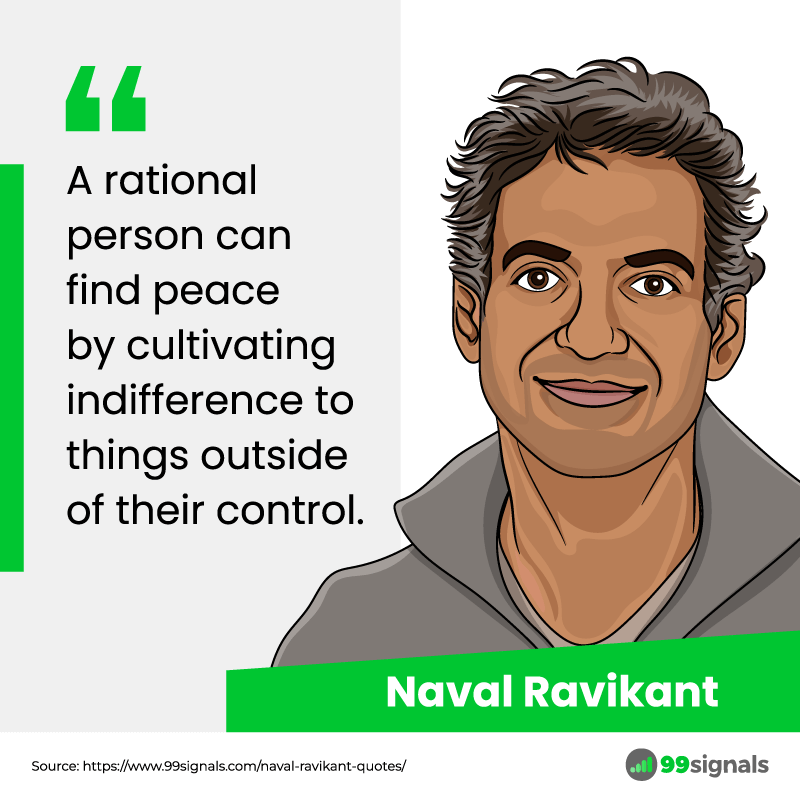









That's a really really good collection. Thanks for sharing